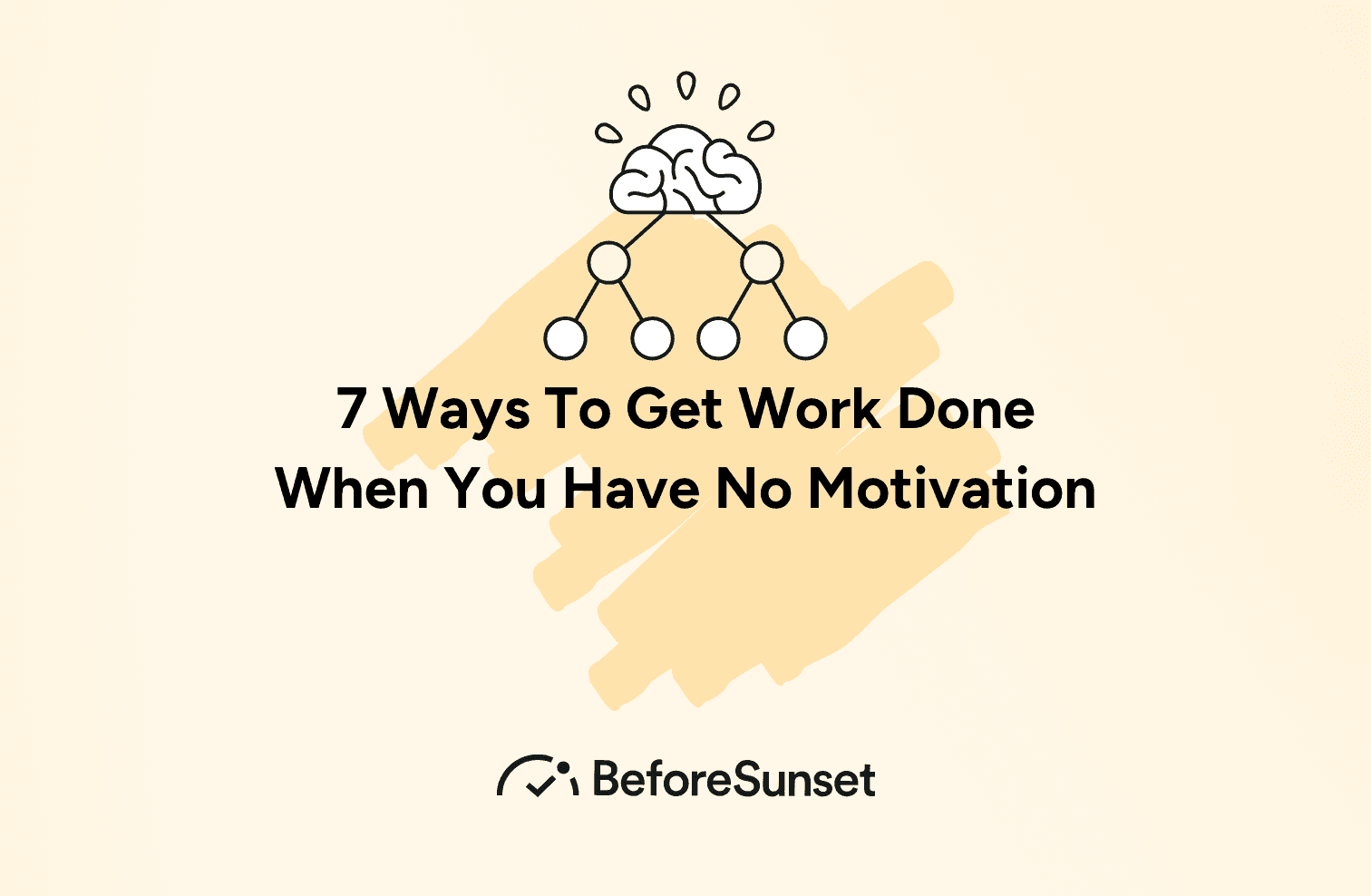“Don't be pushed around by the fears in your mind. Be led by the dreams in your heart.” ― Roy T. Bennett
We all sometimes lack motivation at work and overestimate a job that can end quickly, and we may not find the motivation to start it.
How do we pull ourselves out of this situation? Why does everything sometimes feel so difficult, especially when you are on the verge of the beginning?
Everyone has times when they just don't feel incredibly motivated to work, and in those situations, it can help to make some slight adjustments or even take a short break. You can self-motivate yourself and get help from others, or you can use some tools that may keep you productive and motivated.
How to Get Things Done With Zero Motivation?
If you find yourself lacking motivation, the reason for that could be a mental health issue like depression, stress, or burnout, or it may be a sign that you are not interested in your present activities. Of course, lack of sleep, physical disease, or hormone abnormalities can also contribute to it.
It's crucial to realize that lacking motivation is a common experience and that there are many potential causes. However, if it persists or interferes with your everyday activities, it is advised that you seek medical attention.
You may also like:
11 Morning Routine Checklist: How to Make the Most of Your Time
Why Are You So Tired After Work? 7 Reasons and Ways to Fix It
Going Above and Beyond: 9 Synonyms for Going the Extra Mile at Work
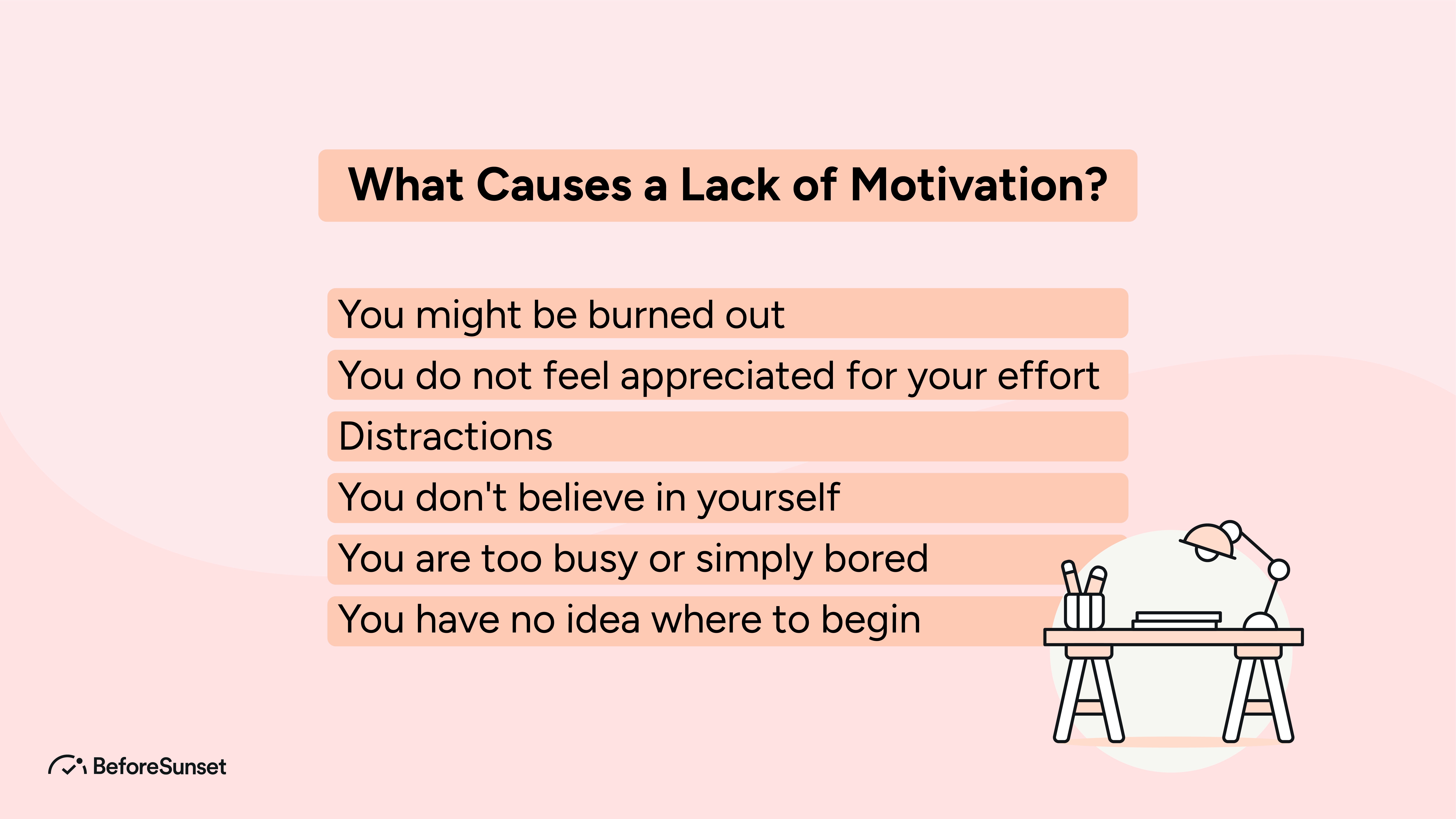
You Might Be Burned Out
You could be burned out, which is why most people lose motivation at work and where all the other causes listed above ultimately end up. Burnout is frequently tied to one's job. According to Mental Health UK, burnout is a state of physical and emotional exhaustion.
Long-term stress at work or working in a physically or emotionally challenging job for an extended period of time might cause this condition. Burnout limits your ability to be productive. It affects your energy and leaves you feeling depressed, cynical, and resentful.
You might not have any energy left for the activities of daily living. When one is burned out, it is difficult to concentrate, fulfill one's tasks, and be creative. Lacking motivation is one of the emotional symptoms of burnout.
Burnout is a state of physical and emotional exhaustion that is frequently tied to one's job and can be caused by long-term stress or working in a physically or emotionally challenging job for an extended period of time.
It can lead to decreased energy and productivity, depression, cynicism, resentment, difficulty concentrating, lack of fulfillment of tasks, and a lack of creativity.
One of the most common symptoms of burnout is a lack of motivation, which can leave someone feeling unmotivated and unable to engage in their daily activities.
You Do Not Feel Appreciated For Your Effort
If you lack sufficient motivation when working, it may be because you cannot see what you receive in exchange for your time and effort, or because you earn less than what you put in.
While working, spending your time and effort hour after hour, you may want to see and understand what you earn in return. As if you are working in vain because you do not understand what you are gaining, this can contribute to your lack of motivation at work.
Feeling appreciated is important in relation to motivation because it allows for a sense of purpose and satisfaction. Lack of appreciation can lead to feelings of unease and frustration, which can disrupt productivity.
Feeling appreciated is important in relation to motivation because it provides a sense of reward for the time and effort put in. When people feel appreciated, they understand that their hard work is being recognized and rewarded.
This encourages them to continue to strive for their goals and can increase their motivation to work hard. Without feeling appreciated, people may not see the point of putting in the hard work and can become demotivated.
Distractions
Your personal life could be the main distraction affecting your work motivation. Problems with family and friends, as well as personal responsibilities, can easily spill over into the workplace.
This can lead to distractions that make it difficult to remain engaged in your work. It might be challenging to maintain a healthy balance between your personal and professional lives if your private life is dynamic.
Distractions can be one of the biggest causes of loss of productivity.
The trend towards open-space work environments exposes workers to high levels of noise and stress. Distraction-free environments, breaks, and meditation can all help to increase motivation and concentration.
Solutions for distractions vary depending on the individual but may include headphones, private spaces, or asking permission to work from home.
If you're struggling to stay motivated, try to find out why and get support from your manager.
Distractions can cause a lack of motivation by stealing away the focus and energy needed to get work done. In open-space work environments, employees are exposed to higher levels of noise and stress which can be overwhelming, reducing the motivation to work.
Additionally, the urge to check social media or the tendency to daydream can be incredibly disruptive. In some cases, mental health conditions such as anxiety, depression, and ADHD can contribute to an inability to focus and cause a lack of motivation.
To combat this, it's important to create a distraction-free environment, take regular breaks, and practice meditation or mindfulness techniques.
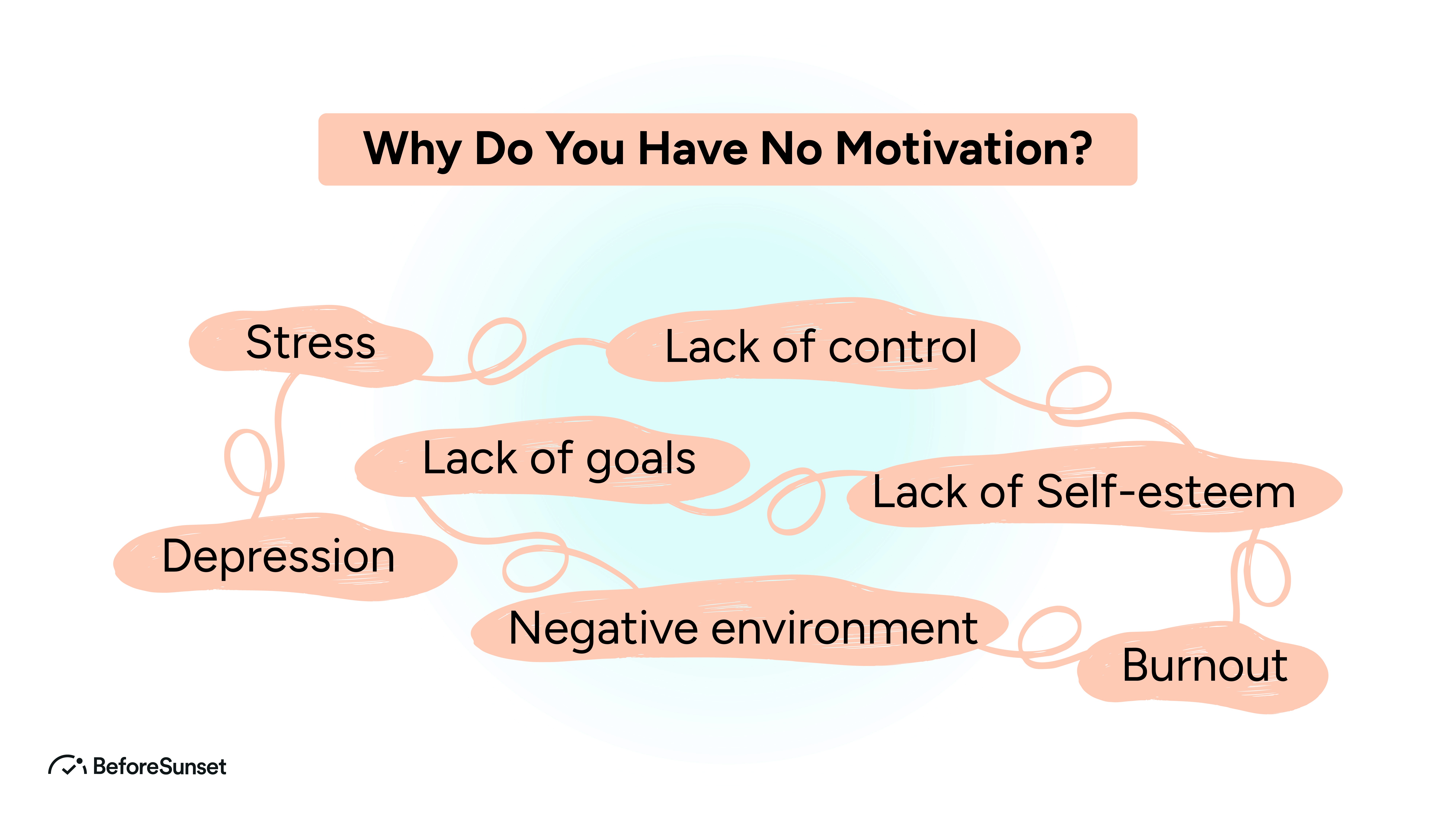
You Don't Believe in Yourself
When you are faced with tough work that needs to be done, you are unable to overcome the anxiety that comes with the possibility of failing.
You might be terrified of failing right from the start because you are concerned about the quality of the work that you have not even started to do. Therefore, if you do not believe in yourself, you will not have the motivation to accomplish that work with passion since you do not have faith.
Believing in oneself is essential in order to achieve motivation because, without it, fear of failure can take over and impede progress. When one has self-doubt, it is difficult to muster the courage and enthusiasm necessary to tackle a difficult task.
Self-belief gives one the confidence to take initiative and strive towards success, no matter how daunting the job may be.
Self-trust is a vital ingredient in achieving motivation, as it gives one the courage and determination to take on new challenges and achieve one's goals.
You Are Too Busy or Simply Bored
You may be running around like a chicken with its head chopped off because you have so much to do, but you cannot complete each work with the same level of motivation and attention.
You may lack motivation at the end of the day if you devote an excessive amount of time and energy to multiple tasks at the same time. Or you might simply be tired of doing anything because you've been doing so much work and want a break.
Being too busy or bored can negatively affect a person's motivation by draining their energy and enthusiasm and making them feel overwhelmed.
When a person is overwhelmed by too many tasks, they may lack the motivation to complete them, and when they become bored with the same tasks, they may no longer feel motivated to complete them either.
You Have No Idea Where to Begin
Occasionally, people are more reluctant to initiate a task than to complete it. When the upcoming job is extremely difficult, lengthy, or tedious, you may not even want to start it, thinking that it will never end.
If you focus on the problems and obstacles you will face when you start, you will either not start, overestimate how hard the task is, or make your own job harder by giving yourself less time to do it.
But once you begin, you may say that you strained and exhausted yourself for nothing; and after it's over, you feel wonderful and may remark,
"I wish I had done it earlier and completed it."
When starting a difficult task, it's important to have a clear goal in mind so that you don't get discouraged. A clear goal helps you stay focused and motivated.
Once you start the task, you'll likely find that it is easier than you thought and that the end result is worth it. Motivation is key to success, but it's easier said than done.
Having a clear goal in mind when trying to become motivated is important for several reasons. Firstly, it helps to break down the task into smaller, more manageable pieces, making it easier to focus on one part at a time.
Secondly, it helps to keep you motivated while working on the task by providing clear direction and purpose. Finally, it makes it easier to judge your progress in completing the task and to assess your success when it is finished.
By having a clear goal in mind, it will be easier to stay motivated and to feel more accomplished when the task is finally completed.
Lack of Motivation and Energy: The Reasons Behind the Feeling
A lack of motivation or energy could happen to anyone and the reason for that varies. It could be caused by physical or emotional issues such as weariness, depression, stress, or a medical ailment. It is even possible that your nutrition, sleeping habits, or exercise routine are causing the problem.
First things first identify what is causing it. Only then you can take the necessary steps to solve your motivation and energy problems.
Let's move on to the section where we show the link between procrastination and lack of motivation.
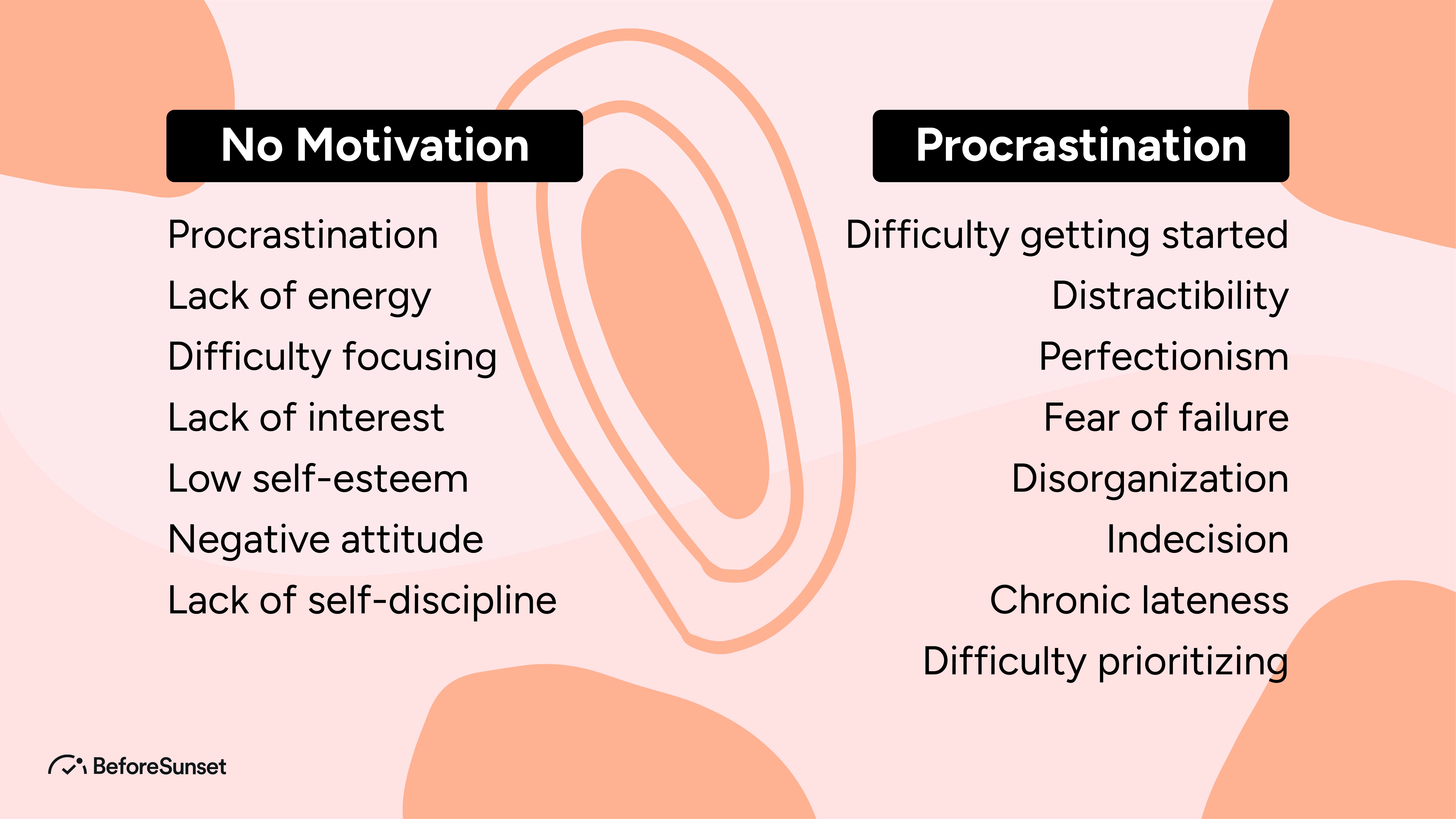
Procrastination and Lack of Motivation: A Vicious Cycle
Why do we procrastinate? Lack of motivation is one of the main causes of procrastination. We tell ourselves that we'll be more motivated to do the work later, but in reality, we just keep putting things off until we have to.
In other words, the more we procrastinate anything, the more and more we remain unmotivated, and as long as our motivation remains low, we continue to procrastinate the things we had planned to do, which results in a cycle that never ends.
If you want to learn more about how to turn this situation around, you can read our blog post specifically about procrastination and how to deal with it professionally.
Is It Normal To Not Want to Work At All?
As human beings, we cannot be expected to be continually motivated to work like robots. There are times when everyone, for a variety of reasons, has no motivation to work and no motivation. We have no motivation to work, so we procrastinate on all of our tasks.
As a result, our tasks start piling up, and we lose even more motivation. The fact that we don't want to work forces us to procrastinate that work, and since we are all human, it is quite natural for us to experience such situations.
When required, we must be able to withdraw ourselves from this unwanted situation. For this, we must understand ourselves, determine our problems, and overcome our lack of motivation.
Having no motivation to work can be caused by a range of mental, physical, and emotional factors.
Post-life changes such as redundancies, breakups, and bereavements can lead to needing a timeout to recuperate, while teenagers can sometimes feel spaced out, moody, and uninterested in tasks due to their minds and bodies changing during adolescence.
Additionally, agreeing to do something we don’t like or not saying no when we want to can result in low motivation. It is also possible that no motivation to work is a symptom of a physical health condition such as chronic fatigue syndrome, hyperthyroidism, epilepsy, or brain tumors.
How to Get Motivated at Work
In order to overcome no motivation to work, it is important to understand why we are feeling this way. Trying to identify if the issue is mental, physical, or emotional can help to narrow down the potential solutions.
If the issue is mental, such as feeling overwhelmed or uninterested in our work, it might be beneficial to ask for help or quit the project.
If the issue is physical, seeking medical advice can help to diagnose and treat any underlying conditions.
On the other hand, if the issue is emotional, talking to a family member, friend, or counselor can help to identify the cause and work through it.
Lastly, if the issue is simply that we no longer feel engaged in our work, it can be beneficial to consider a change such as looking for a new job, starting our own business, or changing our role within our current company.
Effective Solutions For a More Productive You
When you're feeling uninspired, there are a few things you can try to get yourself motivated. You can set small, achievable goals for yourself, take a break and do something you enjoy, find a work buddy who can help keep you accountable and create a positive work environment for yourself.
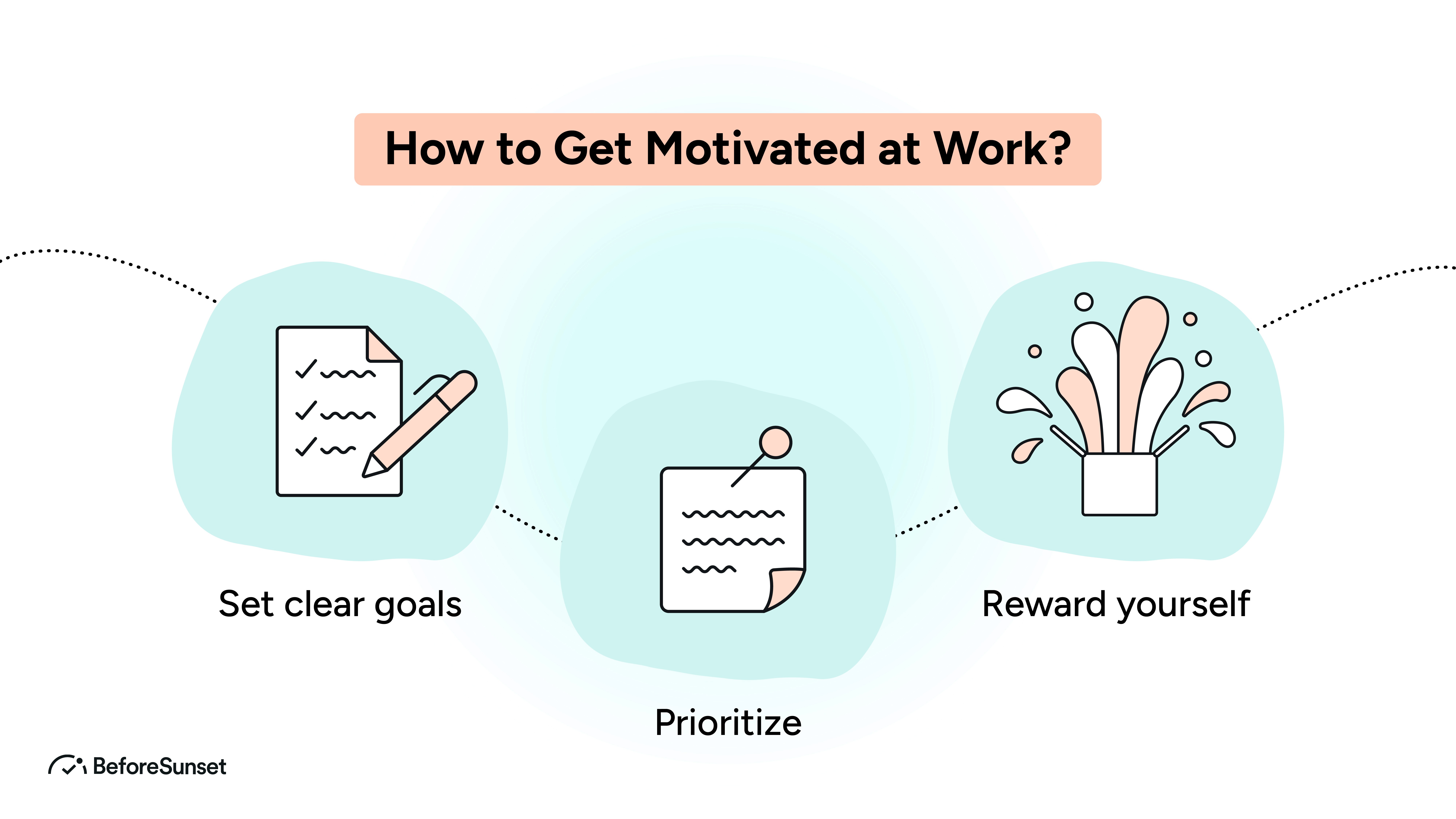
Identify the Cause of Your Lack of Motivation
Firstly, you should absolutely learn about why you have no motivation to work. If you don't get to know yourself and address the underlying issue, your overall output may decrease, and you may suffer from a chronic lack of motivation.
It is important to understand and act appropriately, especially if you are facing a major problem such as burnout, which can lead to permanent mental issues.
Ask for Help
You should not hesitate to request assistance from your friends. When you lack motivation and are unable to begin a necessary task, you can ask a friend to accompany you.
You can work together via video call, you can meet somewhere to work, and you might find the motivation to work you're seeking in a quiet cafe. You can also invite a friend to track your progress and check in on you.
For instance: I'm starting a new job right now; could you check on me in one hour? So, you will have the motive to continue until your friend checks on you. Or you are scheduled to give a presentation but lack any motivation to prepare.
You can motivate yourself to improve by having a good observer friend listen to your presentation while pretending to be an important audience member.
Take a Break
When you are feeling like you have no motivation, sometimes all you need is a short break from what you are doing. Get up and walk around, take a nap, or just take a step away from your computer every once in a while.
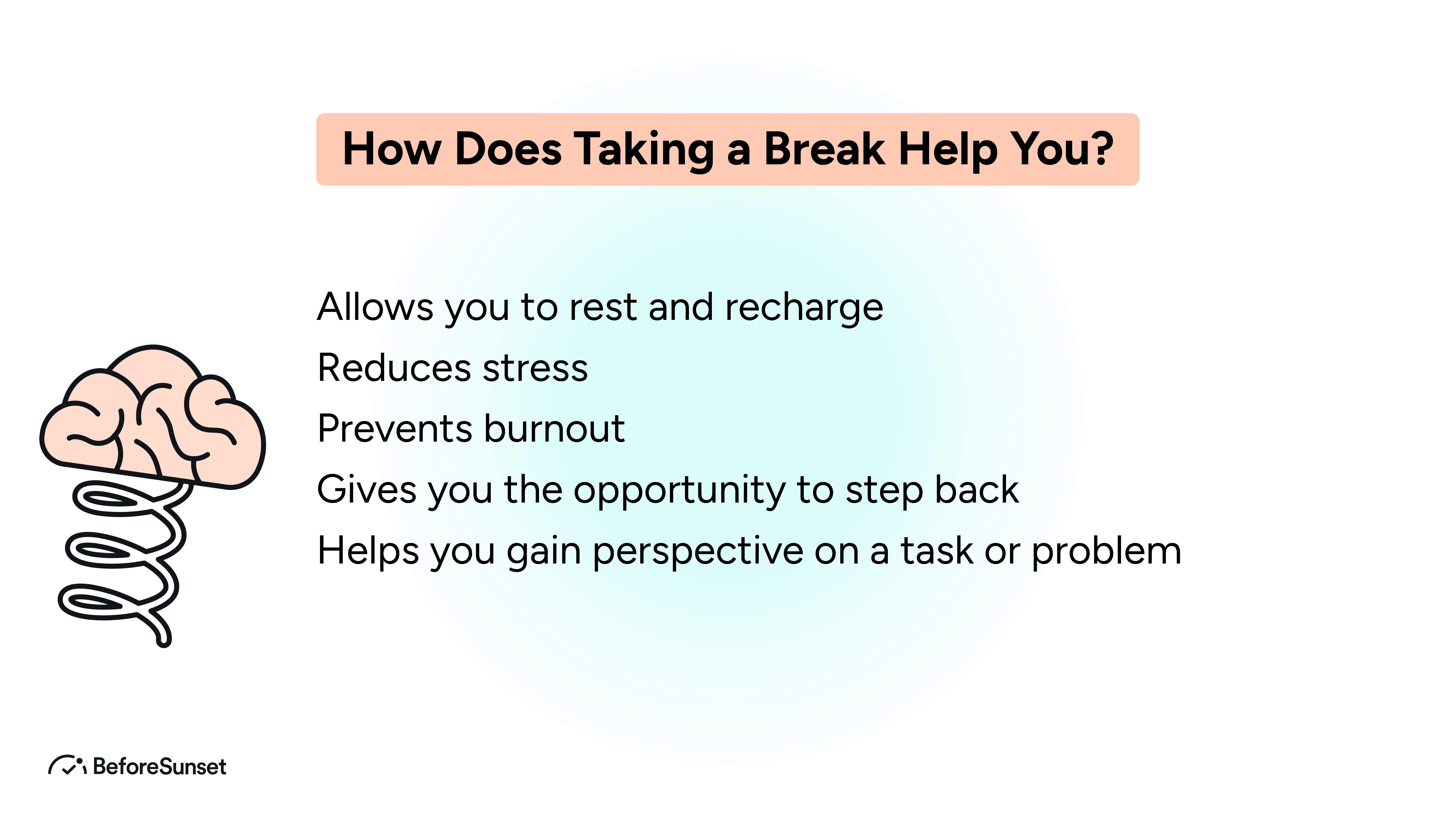
Separate Your Work From Your Personal Life
By keeping your business and personal life separate, you can eliminate a number of distractions. For instance, do not check your business email while dealing with your family, friends, and personal needs.
Thus, you can provide the necessary care and attention to your private life during your free time, when you should not be conducting business, and you will not find the obligations imposed by your private life during work hours to be a problem.
Do Not See Whatever Your Work Is Unsolvable and Impossible
The task you are about to do may seem to you as impossible to do and you might be suspected of your own capability. In any case, you should not exaggerate the upcoming job in your mind; instead, you should have faith in the process.
Connecting the simple pieces first, as in a puzzle, will get you one step closer to accomplishing completion. The key moment, and the time when we need motivation the most, is when we start. After beginning and continuing step by step, there is no work that cannot be completed.
Put Yourself Fake Deadlines
For instance, if you need to complete a task by Friday but postpone it until Friday, you can schedule another activity for Friday, such as spending time with your best friend, to complete the task by Thursday. Thus, you will accelerate your work and manage your time more efficiently.
The significance of putting yourself on fake deadlines in relation to rediscovering motivation is that it can help you to stay focused and motivated to get tasks done in an efficient and timely manner. By setting yourself a deadline that is earlier than the actual deadline, you can challenge yourself to complete the task more quickly and this can be a great way to reignite motivation for the task.
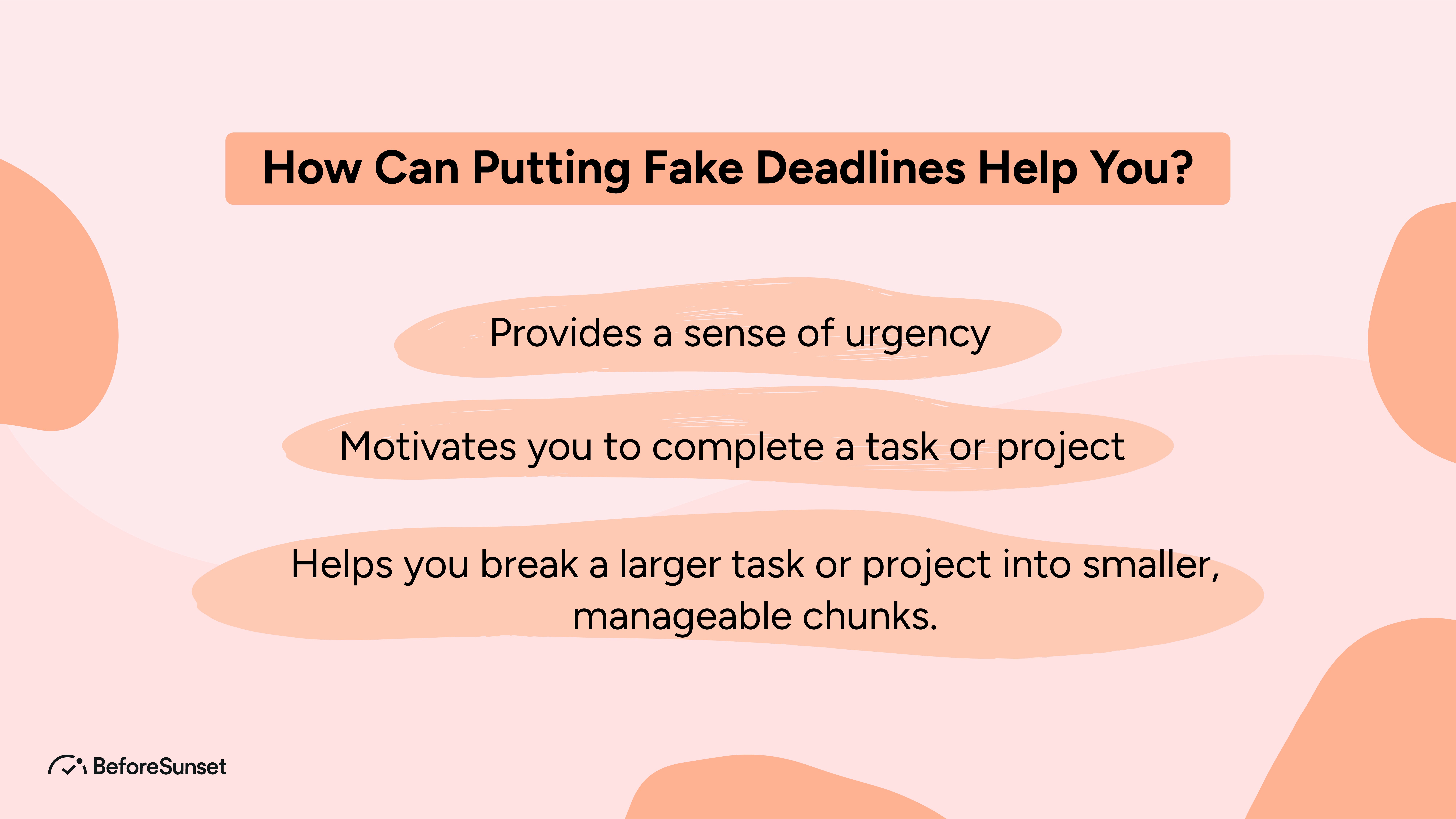
Beautify Your Work Environment According to Your Aesthetics
If you want to restore your motivation, perhaps you should reward yourself by purchasing some cute stationery and office items that you can use to freshen up your workspace.
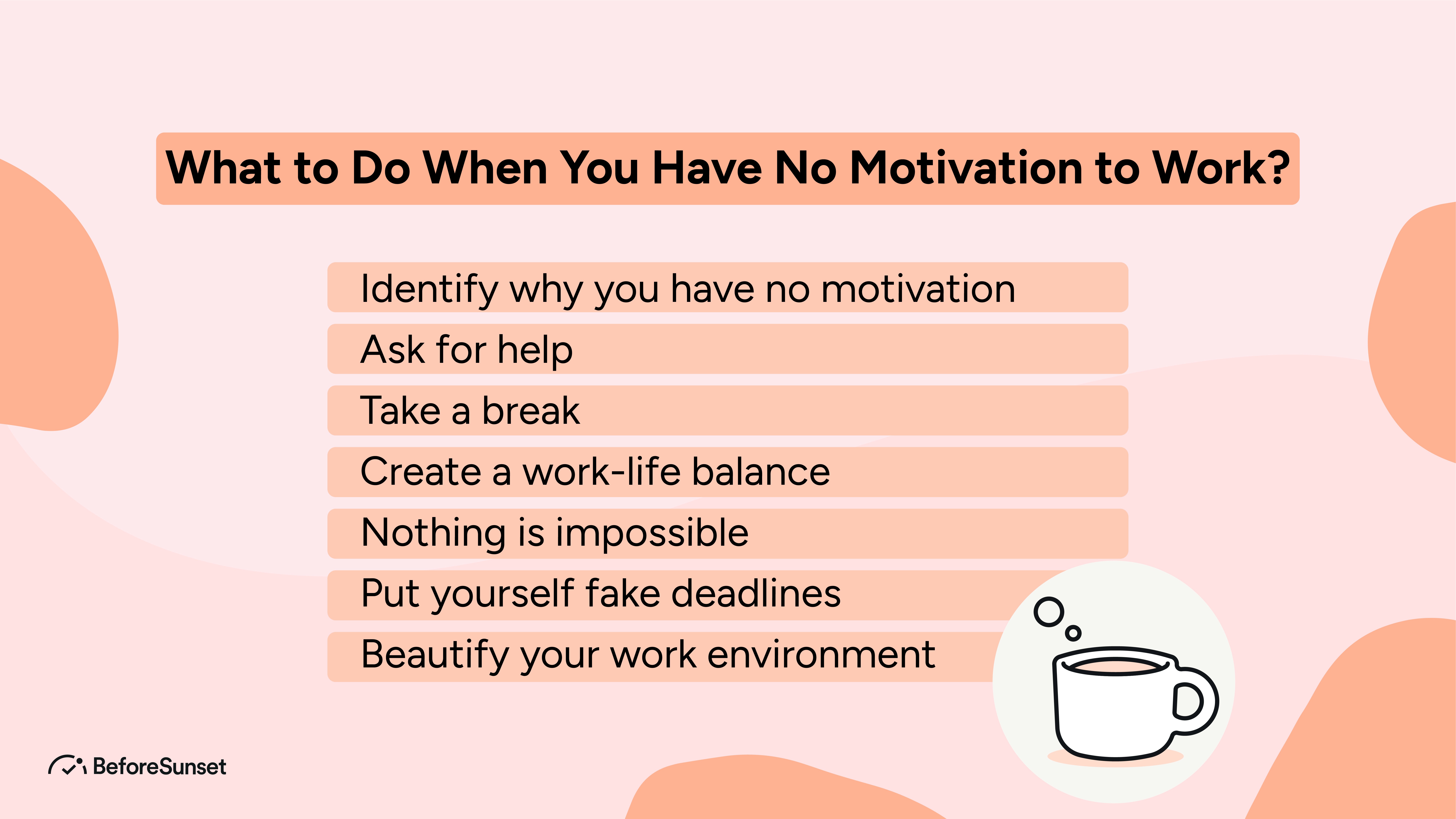
Fixing the Lack of Motivation: Strategies for Long-Term Success
Finding the root causes of a lack of motivation and creating a plan to address them are necessary for long-term resolution. Here are a few tactics that could be useful:
Choose your objectives: You can get a feeling of purpose and direction by setting attainable but challenging goals that are consistent with your values and interests. This will keep you motivated to work toward your goals.
By concentrating on the actions you are doing to reach your objective, rather than merely the outcome, you might discover fulfillment and delight in the labor itself.
Create a growth mentality by considering that your skills and intelligence may be improved with work and education. You can maintain your motivation and tenacity with the aid of this mindset even in the face of obstacles and setbacks.
Make your workplace a positive place to be: Surrounding yourself with positive influences and caring for your physical and emotional needs can also help you stay motivated over the long term.
Ask for help: If you're still having trouble staying motivated, it might be good to ask for help from a therapist or counselor. They can assist you in figuring out the root causes of your lack of motivation and in coming up with solutions.
Reward yourself: When you finish a task, treat yourself to something. The reward can range from a tiny treat to a larger one, such as a day off work or a trip. This will give you something to look forward to and keep you motivated.
Review and Reflection: Think back on your progress and take the time to consider what went well and what didn't; this will help you adapt your approach going forward and maintain your motivation.
It's critical to keep in mind that motivation development and maintenance are constant processes that call for commitment and work. Finding what works for you may take some time, but with perseverance and patience, you can overcome a lack of motivation and accomplish your objectives.
Why Can't You Do It On Any Other Day?
It's fairly uncommon for folks to struggle with delaying or procrastinating activities. This can be caused by a number of issues, including a lack of enthusiasm, trouble defining priorities, a fear of failure, or perfectionism.
Furthermore, some people may find it difficult to begin a task because they don't know where to begin or are feeling overwhelmed.
If you are having problems delaying activities, it may be beneficial to understand the underlying reason for the problem, such as the ideas and emotions that are contributing to your procrastination.
Breaking huge activities down into smaller, more manageable pieces, setting realistic deadlines, and employing positive self-talk are some ways for overcoming procrastination.
It can also be beneficial to reduce distractions and establish a comfortable and orderly work atmosphere.
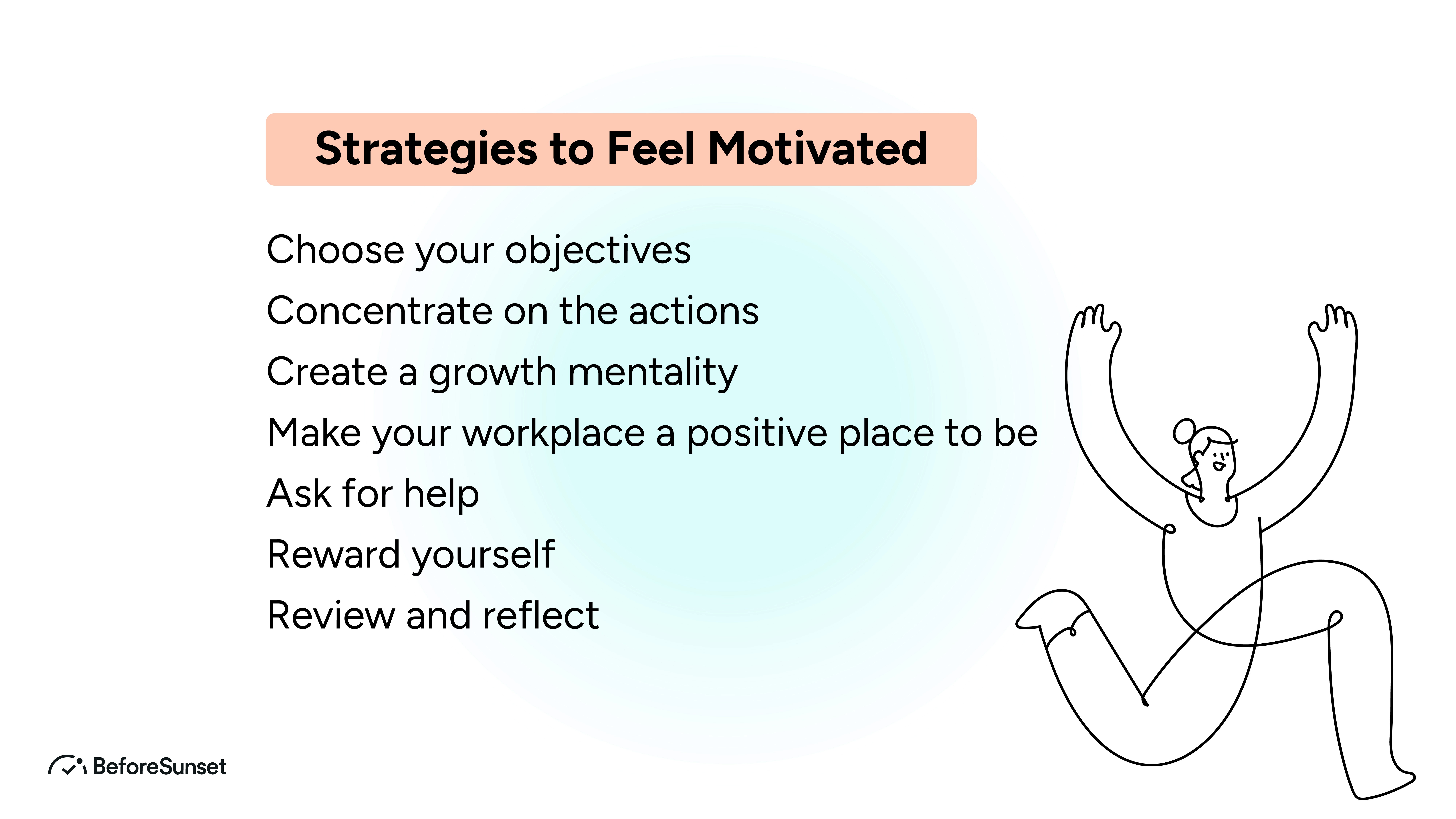
How Can You Finish If You Don't Even Know Where You Should Start?
Getting started on a task can be challenging if you're not sure where to start. The task can be divided into smaller, more doable parts as a possible solution. By doing so, the activity may seem less daunting and may be simpler to begin.
Making a plan and giving oneself a schedule or deadlines is another tactic. You can maintain your focus and motivation by making a strategy and knowing when to finish a task.
It might also be beneficial to compile the knowledge and materials you will need to finish the job, such as any tools, supplies, or instructions that will be needed.
Asking for clarification or looking for more information may be beneficial if you're having problems comprehending the job or what has to be done.
Additionally, it might be useful to remind yourself of the advantages of finishing the activity and how it will help you reach your goals if you are having problems starting a task due to a lack of motivation.
Self-talk is positive and visualization exercises can also help you get motivated to start a task.
However, When The Praise Words Fade Away, You Do Not Feel Motivated
The initial enthusiasm and uplifting emotions that follow getting praise frequently wane with time. It's critical to develop strategies for long-term motivation maintenance.
Setting realistic objectives for yourself that reflect your values and interests is one approach to this. This may offer you a sense of direction and purpose and keep you motivated to strive toward your objectives.
Focusing on the process of finishing a task rather than just the result is another tactic. Instead of merely concentrating on the outcome, you can discover fulfillment and delight in the process of working toward your goal.
It's also advantageous to adopt a growth mindset, which is the conviction that your skills and intelligence can be improved through work and education. You can maintain your motivation and tenacity with the aid of this mindset even in the face of obstacles and setbacks.
Long-term motivation can also be sustained by cultivating a great work environment, surrounding oneself with encouraging others and attending to your physical and emotional needs.
BeforeSunset AI Helps You Get Things Done
Sign up for free and let BeforeSunset AI automate your planning process, saving you valuable time. It generates personalized plans based on your schedule and workload, helping you be more productive than ever. Experience the benefits firsthand so you don’t worry about procrastination!


